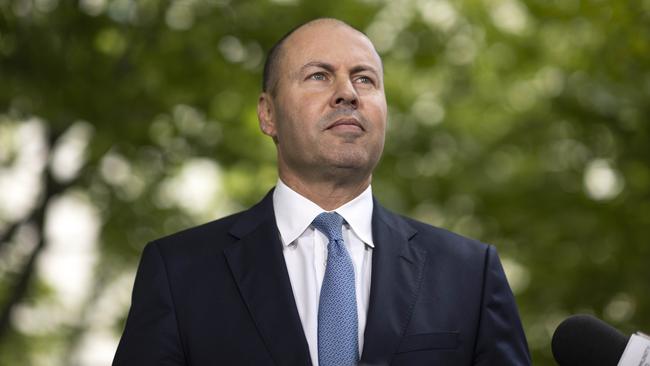Google may escape tough Australian news laws after a last-minute spending spree
Google could avoid tough new regulations in Australia after striking a series of multimillion-dollar agreements with news outlets.
National
Don't miss out on the headlines from National. Followed categories will be added to My News.
Google may escape world-first laws impacting its search engine after a last-minute spending spree with Australian news outlets this week.
The laws designed to regulate tech giants Google and Facebook were introduced to the Australian parliament on Wednesday in a bid to force the companies to pay news outlets for the use of their content.
But Treasurer Josh Frydenberg said several multimillion-dollar deals struck in the days before the news media bargaining code was introduced “changes the equation,” and may address problems the laws were designed the solve.
Nine Entertainment reportedly struck a $30 million a year deal with Google on Wednesday over the use of its news for the next five years.

It followed a Google deal with Seven West Media on Monday for a similar figure, and a contract with Junkee Media that chief executive Neil Ackland said represented a “significant investment” that would guarantee its “sustainability well into the future”.
Other deals between Google and media outlets including Guardian Australia and ABC are expected imminently.
Facebook has yet to announce any agreements with Australian publishers.
Mr Frydenberg said Google’s “generous” deals had only been struck due to the threat of regulation, and Australia’s news media bargaining code could “pave the way forward” for public-interest journalism.
“None of these deals would be happening if we didn’t have the legislation before the parliament,” he said.
“This code has exceeded what others have tried and failed to do. It is a framework, a lasting legal mandatory framework, which is obviously the reason why the parties have come to the table.”
The Treasurer confirmed he held discussions with Google chief executive Sundar Pichai and Facebook founder Mark Zuckerberg over the weekend, and said the government “held the line” on the new laws.

Mr Frydenberg did leave the door open to whether he would designate Google’s Search or Facebook’s Newsfeed to be subject to the laws, however, given the deals that were being put in place.
“I don’t want to pre-empt any decisions that I may or may not take as the Treasurer to designate a particular digital platform under this code,” Mr Frydenberg said.
“But what I have said is if commercial deals are in place then it changes the equation.”
Swinburne media senior lecturer Dr Belinda Barnet said avoiding designation under the laws would be the “best possible outcome” for Google, which had campaigned fiercely against the news code and threatened to remove its search engine in Australia to avoid setting an international precedent.
“Google appears to have won, for all their flailing about and end-of-the-world scenarios,” Dr Barnet said.
“But while it’s a win for them, it’s also a win for media companies. There’s no way Nine would have walked away with a $30 million deal if this was not about to be debated in parliament.”
Despite the deals, Media Entertainment and Arts Alliance federal president Marcus Strom said the laws were still vitally important to protect the future of journalism in Australia, particularly for smaller publications.
“The news bargaining code is still needed to ensure both of these global digital platforms contribute to the cost of all the journalism that they benefit from, and that smaller players are also compensated for their content, especially community, regional and rural outlets,” he said.
The news code is expected to be passed into law this week.
Originally published as Google may escape tough Australian news laws after a last-minute spending spree



